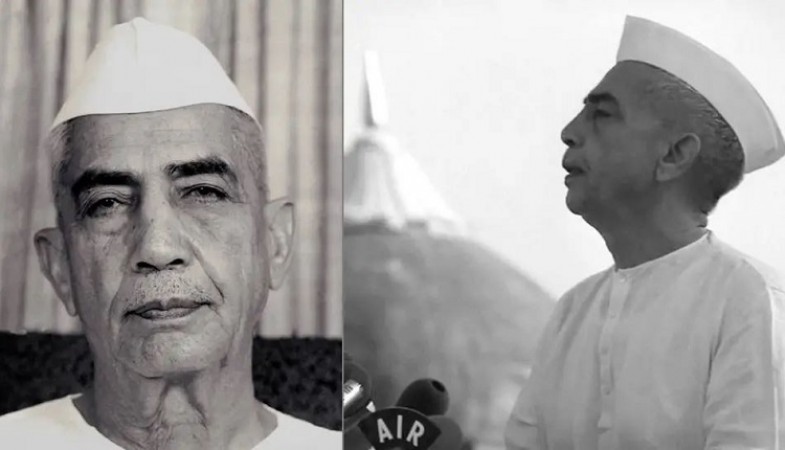
This Day That Year- On July 28, 1979, Chaudhary Charan Singh, a prominent Indian political leader, achieved a significant milestone in his career when he was sworn in as the fifth Prime Minister of India. His rise to power marked a pivotal moment in the country's political landscape, as he took on the responsibility of leading the nation during a critical period. This article delves into the life and accomplishments of Chaudhary Charan Singh and explores the circumstances that led to his appointment as the Prime Minister of India.
Early Life and Political Journey: Born on December 23, 1902, in a small village named Noorpur in the Meerut district of Uttar Pradesh, Chaudhary Charan Singh belonged to a humble farming family. He completed his education at Agra University, where he developed an affinity for agriculture and rural development. Inspired by the teachings of Mahatma Gandhi and impressed by India's freedom struggle, Charan Singh embarked on a political journey to fight for the rights of farmers and the rural poor.
Throughout his political career, Charan Singh actively participated in various agrarian movements and championed the cause of farmers. He strongly believed that the prosperity of India lay in the hands of its rural population, and he tirelessly advocated for policies that would improve their livelihoods and agricultural conditions.
Political Achievements and Ministerial Roles: Charan Singh's dedication and relentless efforts earned him the respect and admiration of his peers and followers. He became a prominent leader in the Indian National Congress and later joined the Bharatiya Kranti Dal (BKD), which he helped establish in 1951. As a member of the BKD, he played a pivotal role in forming the first non-Congress coalition government in Uttar Pradesh in 1967.
Throughout his political career, Charan Singh held several ministerial positions, including the Ministry of Home Affairs and the Ministry of Finance. His experience in various government roles allowed him to develop a nuanced understanding of India's socio-economic challenges, especially those faced by the agricultural community.
Ascension to the Prime Ministerial Office: The political scenario in India during the late 1970s was tumultuous. In July 1979, the Janata Party, which was in power, witnessed internal disputes that resulted in the resignation of Prime Minister Morarji Desai. Following Desai's resignation, Chaudhary Charan Singh was elected as the leader of the Janata Party and thus became the Prime Minister of India on July 28, 1979.
However, Singh's tenure as Prime Minister was short-lived. Owing to the complexities of coalition politics and lack of a stable majority in the Parliament, his government faced constant challenges and was eventually defeated in a no-confidence motion in January 1980.
Legacy and Impact: Although Chaudhary Charan Singh's term as Prime Minister was brief, his legacy as a champion of farmers and the rural populace remains enduring. He continued to serve as an influential leader in the opposition after his government's collapse. Throughout his political career, he emphasized the importance of agrarian reforms and the upliftment of the marginalized sections of society.
Even after his passing in May 1987, Charan Singh's ideals and principles continued to inspire subsequent generations of politicians, especially those from agrarian backgrounds. His contribution to India's politics and policies focused on rural development and agricultural reforms, leaving an indelible mark on the nation's governance.
July 28, 1979, marked a historic moment in India's political history when Chaudhary Charan Singh was sworn in as the fifth Prime Minister of the country. A dedicated and ardent advocate for farmers and rural development, Singh's ascent to power was a testament to his unwavering commitment to the welfare of the masses. Though his time as Prime Minister was short, his impact on Indian politics and his legacy as a proponent of agrarian reforms continue to be remembered and revered to this day.